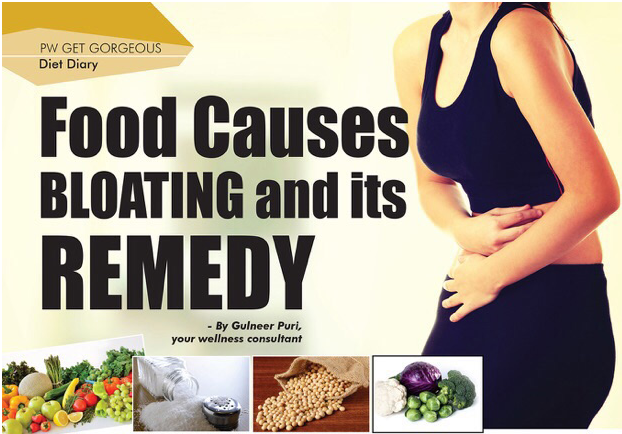
Gas and bloating are very uncomfortable conditions, which every women goes through at all age group and it becomes trouble some once women reach their 30’s and are unable to take time out for exercise. Having being travelled to different cities within India, America and United Kingdom, I heard many people complaining of bloating stomach. This happens due to wrong combination of food we eat and our enzymes within our body are unable to digest them.
However it is not possible to have a perfect flat stomach all the time. After we eat and drink any kind of food or liquid, it takes up space inside our intestines that leads to expansion. A ballooned belly does not mean that something is wrong with what we eat, but if our abdomen is too swollen to squeeze into your jeans, you may like to identify belly bloater in your diet.

Cruciferous vegetables
Cruciferous vegetables are spinach, kale, broccoli and cabbage, which contain raffinose – a sugar that remains undigested until bacteria in your gut ferments it, which produces gas and makes you bloat. These are nutrient dense vegetables, which should not be avoided from your diet. So one can steam them and also should keep an eye on the portion sizes. Cooking these vegetables softens the fiber and shrinks the portion, as some of the water cooks out, so it takes less space in the GI tract. It will not eliminate or prevent bloating all together, but will help in making your veggies easier to digest.
Beans
Another food item is beans, along with lentils. Soya beans are gas-causing food. These small buds are burst of proteins but they also contain sugar and fiber that our body can’t absorb. When legumes enter large intestines, gut bacteria feeds on them. This process leads to gas and our waist gets enlarged like a balloon.
Legumes
I would recommend to combine legumes with easily digestible whole grains like rice or quinoa. You can also well combine them with fruits, vegetables, nuts or whole grain as they would not bother you as much as you eat them sporadically.
Milk and Milk Products
After drinking milk or eating milk products, you might feel bloated or gassy. This may be because you are lactose intolerant, which means that body lacks necessary enzymes to break down lactose. This can cause the gas to form in the GI tract. You can also opt for lactose free or non-dairy alternative. The American gastroenterological Association (AGA) also suggests use of lactose tablets like lactaid, which helps people digest food that contains lactose.
High Sodium Diet
Eating high sodium food can trigger water retention. Avoiding sodium is not as simple as steering clear of salt-shaker.
It is very surprising when I talk about apples. These are great snacks. This fruit is high in fibers and also contains fructose and sorbitols. One fruit provides with an average of 4.5 grams of proteins and around 10% of your daily Vitamin C. So one should not give up on them totally. Eat them in moderation and separately from meals.


